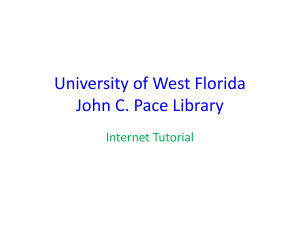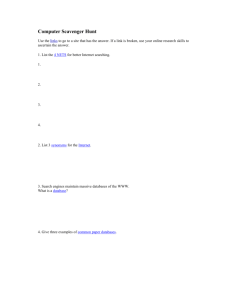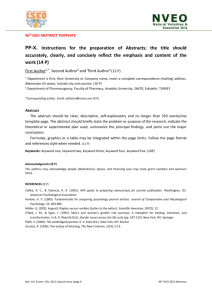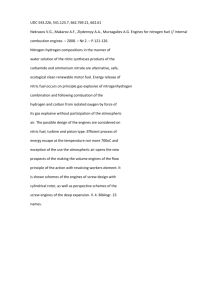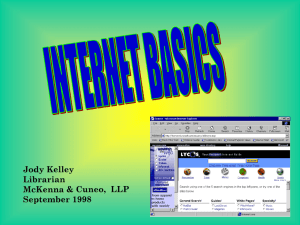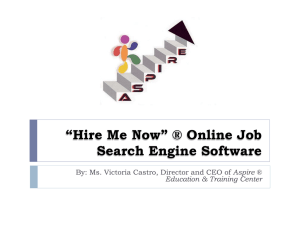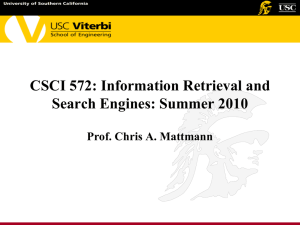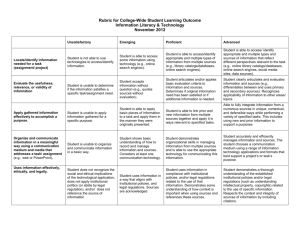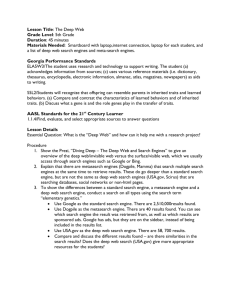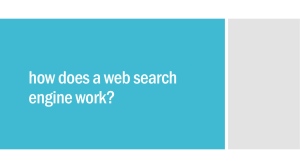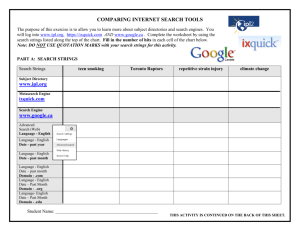Researching the World Wide Web
advertisement
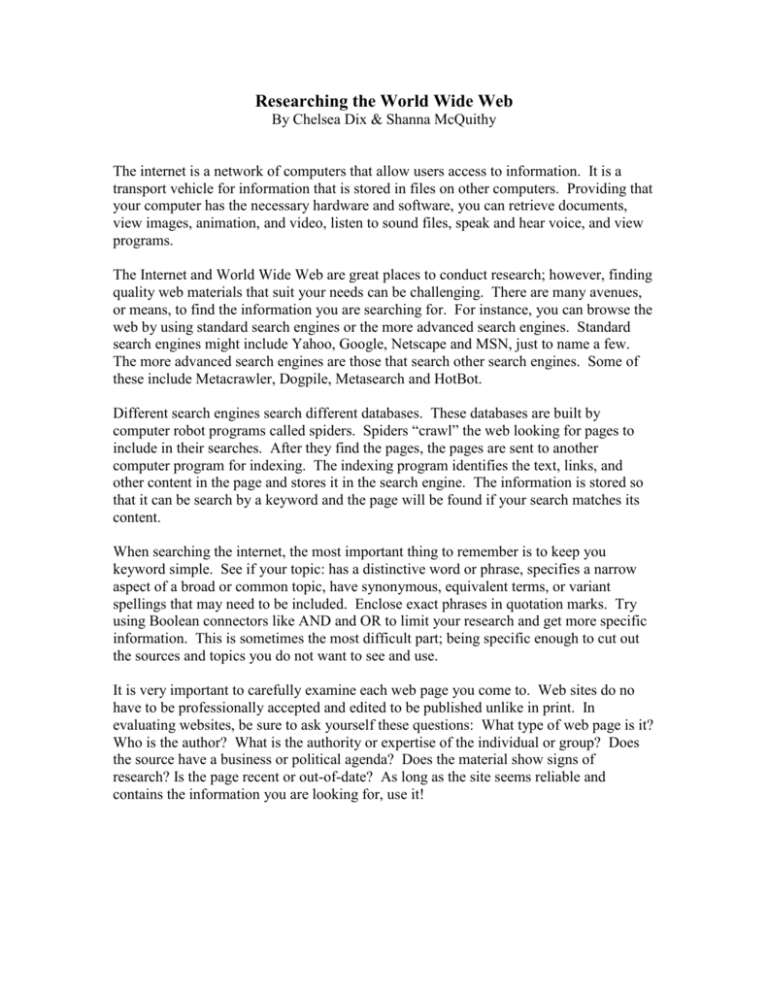
Researching the World Wide Web By Chelsea Dix & Shanna McQuithy The internet is a network of computers that allow users access to information. It is a transport vehicle for information that is stored in files on other computers. Providing that your computer has the necessary hardware and software, you can retrieve documents, view images, animation, and video, listen to sound files, speak and hear voice, and view programs. The Internet and World Wide Web are great places to conduct research; however, finding quality web materials that suit your needs can be challenging. There are many avenues, or means, to find the information you are searching for. For instance, you can browse the web by using standard search engines or the more advanced search engines. Standard search engines might include Yahoo, Google, Netscape and MSN, just to name a few. The more advanced search engines are those that search other search engines. Some of these include Metacrawler, Dogpile, Metasearch and HotBot. Different search engines search different databases. These databases are built by computer robot programs called spiders. Spiders “crawl” the web looking for pages to include in their searches. After they find the pages, the pages are sent to another computer program for indexing. The indexing program identifies the text, links, and other content in the page and stores it in the search engine. The information is stored so that it can be search by a keyword and the page will be found if your search matches its content. When searching the internet, the most important thing to remember is to keep you keyword simple. See if your topic: has a distinctive word or phrase, specifies a narrow aspect of a broad or common topic, have synonymous, equivalent terms, or variant spellings that may need to be included. Enclose exact phrases in quotation marks. Try using Boolean connectors like AND and OR to limit your research and get more specific information. This is sometimes the most difficult part; being specific enough to cut out the sources and topics you do not want to see and use. It is very important to carefully examine each web page you come to. Web sites do no have to be professionally accepted and edited to be published unlike in print. In evaluating websites, be sure to ask yourself these questions: What type of web page is it? Who is the author? What is the authority or expertise of the individual or group? Does the source have a business or political agenda? Does the material show signs of research? Is the page recent or out-of-date? As long as the site seems reliable and contains the information you are looking for, use it! Researching the World Wide Web Made Simple: Get Connected! Go to your favorite search engine. Enter your keyword(s) in the search toolbar. Press “Search” or “Find” or “Go”. A list of sites with contents matching your keyword(s) will appear. Click on the links to each site to enter and review the content. If the site seems reliable and what you needed, print it off! It’s that Simple! Remember, you may have to look through several sites to get just the right information for your topic. Do NOT give up. If all else fails, just change your keyword(s) and try again.
